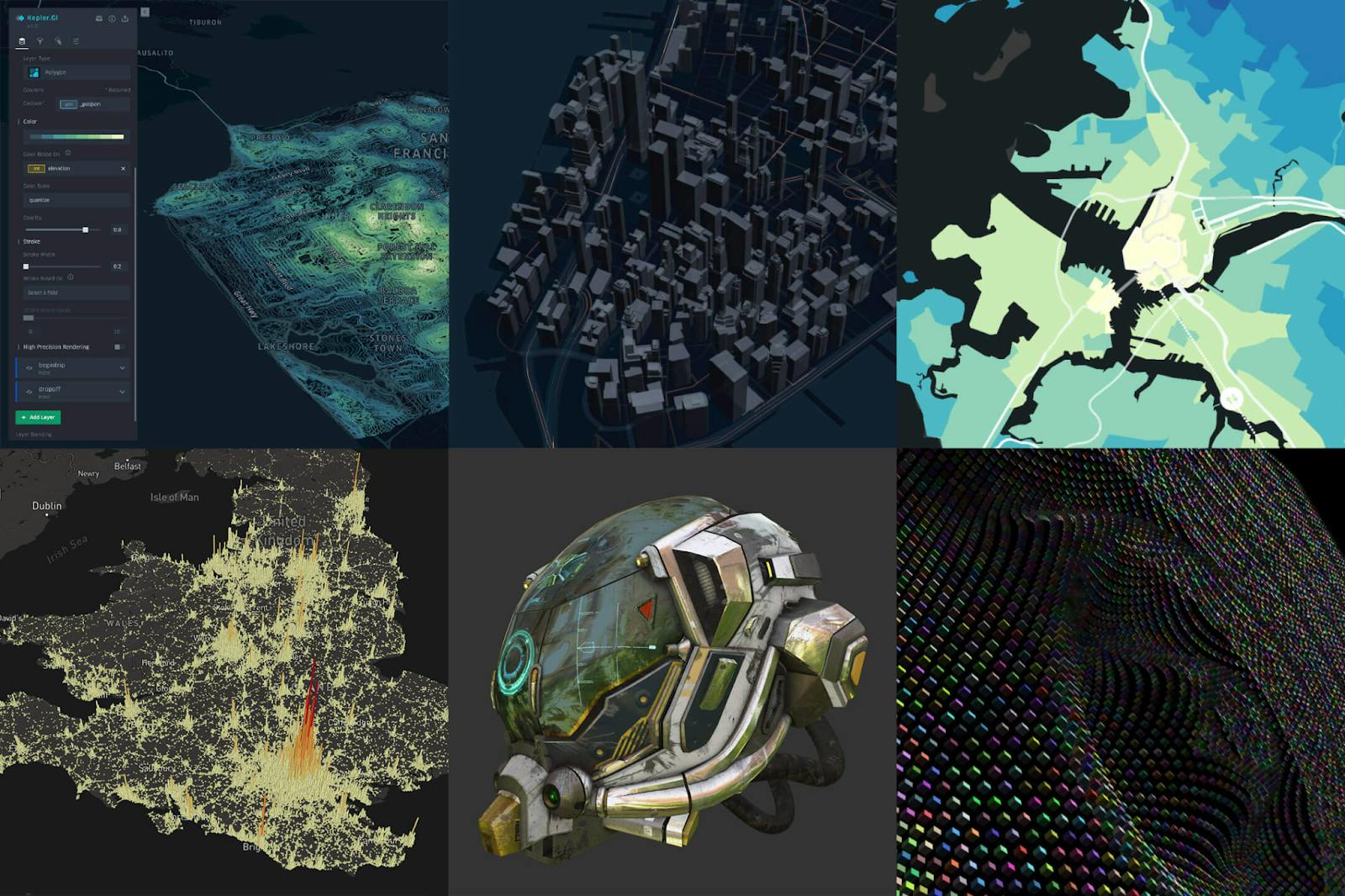OpenJS World 2022: OpenJS Foundation Welcomes Urban Computing Foundation, vis.gl and kepler.gl
Testing, Security and Visualization are major themes of OpenJS World, currently being held in Austin, TX, June 6-10

OpenJS World 2022: OpenJS Foundation Welcomes Urban Computing Foundation, vis.gl and kepler.gl
Testing, Security and Visualization are major themes of OpenJS World, currently being held in Austin, TX, June 6-10
The OpenJS Foundation is announcing that the Urban Computing Foundation (UCF) has partnered with OpenJS to form the Open Visualization Collaboration Space. The Open Visualization Collaboration Space provides a place to openly govern the most comprehensive and widely adopted visualization libraries based on WebGL. UCF is also merging its day-to-day operations and budgets into OpenJS where it will govern these projects and more under the new OpenJS Open Visualization Collaboration Space. Two of its most popular visualization projects – vis.gl and kepler.gl – are moving under the umbrella of the OpenJS Foundation.
Vis.gl is a suite of frameworks for GPU powered data visualization and analysis of large datasets on the web. It is one of the most widely adopted WebGL visualization libraries, with close to 100K daily downloads from npm. kepler.gl is a data-agnostic, high-performance web-based application for visual exploration of large-scale geolocation data sets. The kepler.gl demo app has 30k weekly users.
“The Urban Computing Foundation has nurtured multiple great data visualization projects that have become widely used, adding important pieces to the JavaScript ecosystem. There is immense potential for big data to be better visualized and better utilized through the web. Improved visualization tools are key to improving JavaScript in fields like geospatial analysis, data-driven mapping, self-driving cars, and more,” said Robin Ginn, OpenJS Foundation executive director. “We’re very excited to have UCF merge with OpenJS to broaden its developer engagement for the exciting area of data visualization.”
Historically UCF was a home for Mapzen and related projects. In recent years it became a host for the WebGL geospatial visualization projects Kepler.gl and Vis.gl, including multiple Vis.gl sub-projects.
OpenJS also welcomes four UCF members who are now members of the OpenJS Foundation: Foursquare, HERE Technologies, Joby Aviation, and Uber. Open visualization technologies are core to each of these companies’ leadership positions in the market, and by supporting the foundation, they are supporting the infrastructure and long-term growth of key open source projects that they rely on.
Vis.gl
The offerings of vis.gl are packaged and best represented by its flagship framework, deck.gl. It has been integrated with most popular base map providers such as Mapbox, Google Maps and ArcGIS; bindings to use with React, Python/Jupyter, R, Vega and CUDA; libraries that tackle 3D geometry editing (nebula.gl), animation (hubble.gl), autonomous vehicles (AVS), multiplexed bioimaging (Viv), etc. Companies including Google, ESRI, CARTO, Foursquare and Cesium have contributed for the project to work with their libraries or data formats.
“The vis.gl projects are under active development and use, and have great potential for being used widely. We wanted to be connected to an organization like the OpenJS Foundation to support activities that help build growth and popularity. We were already well aligned with the OpenJS Foundation goals, and I believe this is an excellent path forward for both the developers and users of vis.gl and kepler.gl,” said Chris Gervang, Joby Aviation senior visualization engineer. “We look forward to these next steps.”
Kepler.gl
kepler.gl is one of the most powerful open source browser-based geospatial analysis visualization tools. The kepler.gl demo app is open to all and has 30k weekly users. It is especially well known in geospatial analytics and visualization fields. It has been integrated with Jupyter Notebooks, Jupyter Labs, VSCode, Tableau, and Apache Superset. Users include Unfolded (acquired by Foursquare), Uber, and Carto. And there are many more companies in the mobility space that are using kepler.gl internally for geospatial analysis.

More from OpenJS World 2022 and the OpenJS Foundation: Testing and Security
The OpenJS Foundation recently announced that popular JavaScript testing framework Jest is joining as an Impact Project. Jest and its assets are being donated proudly by Meta Open Source. Jest is a JavaScript testing framework. It allows you to write tests with an API with little configuration. Jest currently has over 17 million weekly downloads and 38,000+ GitHub stars, making it the most used testing framework in the JavaScript ecosystem. It consistently ranks as one of the JavaScript libraries with the highest satisfaction, and is used by companies of all sizes including Amazon, Google, Meta, Microsoft, and Stripe. Jest 28 was just released.
Open Source Security Foundation (OpenSSF) selected Node.js as its initial project to improve supply chain security. Node.js is the first open source community to be supported by OpenSSF’s Alpha-Omega Project. Alpha-Omega committed $300k to bolster the Node.js security team and vulnerability remediation efforts through the rest of 2022, with a focus on supporting better open source security standards and practices.
Maintainers across the OpenJS Foundation-hosted projects through their Cross Project Council are also seeking to leverage its better together approach by sharing best practices, guidance, and support among OpenJS and other JavaScript projects in the ecosystem. Today they announced the new OpenJS Security Working Group comprised of members from across the CPC and OpenJS leadership.
Together, they hope to reduce the risk and set ambitious security goals for all OpenJS projects. They intend to further define, document, communicate, and measure in an open and transparent way.
More specifically, the CPC security goals include:
- Strengthening the security and sustainability of the OpenJS projects to improve the software supply chain.
- Increasing security contributions (time, people and resources) from public and private organizations, and security communities.
- Increasing collaboration among security communities and JavaScript project maintainers.
OpenJS Resources
Click here to learn more about how you could be a part of the OpenJS Foundation, and view these additional resources:
- OpenJS Certification Program
- OpenJS Latest News and Blogs
- Open JS Slack Workspace
- Become an Individual Supporter – Join JavaScriptLandia
About OpenJS Foundation
The OpenJS Foundation is committed to supporting the healthy growth of the JavaScript ecosystem and web technologies by providing a neutral organization to host and sustain projects and collaboratively fund activities for the benefit of the community at large. The OpenJS Foundation is currently home to 39 open source JavaScript projects, including Appium, Dojo, Electron, jQuery, Node.js, and webpack. It is supported by 30 corporate and end-user members, including GoDaddy, Google, IBM, Intel, Joyent, Microsoft, and Netflix. These members recognize the interconnected nature of the JavaScript ecosystem and the importance of providing a central home for projects which represent significant shared value.
About Linux Foundation
Founded in 2000, the Linux Foundation is supported by more than 1000 members and is the world’s leading home for collaboration on open source software, open standards, and open hardware. Linux Foundation projects like Linux, Kubernetes, Node.js, and more are considered critical to developing the world’s most important infrastructure. Its development methodology leverages established best practices and addresses the needs of contributors, users, and solution providers to create sustainable models for open collaboration. For more information, please visit their website.